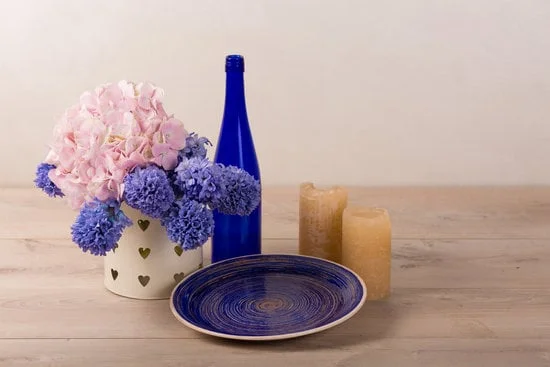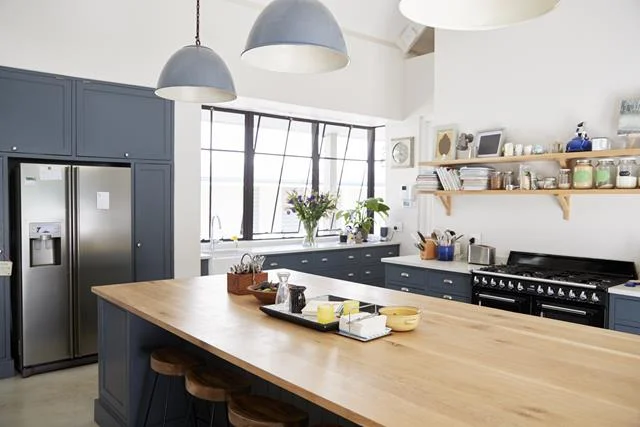Are you passionate about creating beautiful and inviting spaces? Do you have a keen eye for design and style? If so, you may be considering a career as a home decorator.
In this article, we will guide you on how to become a successful home decorator, from understanding the basics of home decor to developing your unique style and niche. Whether you are just starting out or looking to take your decorating skills to the next level, this comprehensive guide will provide you with the essential steps to kickstart your career in home decorating.
Home decorating is much more than just arranging furniture and adding decorative elements to a space. It involves understanding the principles of design, color theory, spatial planning, and more. In the following sections, we will explore the fundamentals of home decor and provide you with valuable insights into what it takes to transform a plain room into an aesthetically pleasing environment that reflects the personality and lifestyle of its occupants.
Moreover, we will delve into the education and training opportunities available for aspiring home decorators. From formal education programs to hands-on experience in the field, we will discuss how you can equip yourself with the knowledge and skills needed to succeed in this competitive industry.
Additionally, we will touch on the importance of building a strong portfolio and gaining practical experience to showcase your abilities as a home decorator. So if you’re ready to embark on this exciting journey, let’s dive into the world of home decorating and discover what it takes to thrive in this creative profession.
Understanding the Basics of Home Decor
When it comes to home decorating, there are several key elements that every aspiring decorator should understand. These elements include color theory, furniture arrangement, and understanding different design styles. Color theory is an essential aspect of home decor as it helps decorators choose the right color scheme for a room based on the mood they want to create.
Understanding how to arrange furniture in a way that is both functional and visually appealing is also crucial. Additionally, having knowledge about different design styles such as modern, traditional, and eclectic can help decorators cater to a wider range of clients.
Another important aspect of understanding the basics of home decor is knowing how to work within a client’s budget while still creating a space that is aesthetically pleasing. It’s essential for home decorators to have an eye for design and understand how to make the most out of any budget. This can involve finding affordable pieces that still look high-end or repurposing items in creative ways.
In addition to these technical skills, it’s also important for home decorators to have good communication and listening skills. Being able to effectively communicate with clients and understand their needs and preferences is crucial in this industry. It’s not just about creating a visually pleasing space; it’s also about making sure that space reflects the client’s personality and lifestyle.
| Key Elements | Description |
|---|---|
| Color Theory | Choosing the right color scheme based on mood |
| Furniture Arrangement | Understanding functional and visually appealing layouts |
| Design Styles | Knowing different styles such as modern, traditional, eclectic |
Education and Training for Home Decorating
When pursuing a career in home decorating, it is essential to have the proper education and training to enhance your skills and knowledge in this field. While creativity and an eye for design are crucial, formal education and training can provide you with the technical expertise to excel in the industry.
Formal Education
Many colleges, universities, and vocational schools offer programs specifically tailored to home decorating or interior design. These programs often cover topics such as color theory, space planning, furniture design, textiles, and more. Pursuing a degree or certification in home decorating can provide you with a strong foundation in the principles of design and help you develop practical skills that will be valuable in your career.
On-the-Job Training
In addition to formal education, gaining hands-on experience through internships or entry-level positions can be invaluable for aspiring home decorators. Many firms or established home decorators offer internships or apprenticeships to individuals looking to enter the industry. These opportunities allow you to work alongside experienced professionals, learn about the day-to-day tasks of a decorator, and gain practical experience that will complement your formal education.
Continuing Education
The field of home decorating is constantly evolving, with new trends, technologies, and materials emerging regularly. To stay current in the industry, consider taking continuing education courses or workshops. This will allow you to expand your skillset, stay updated on the latest trends, and maintain a competitive edge in the market. Continuing education can also provide networking opportunities with other professionals in the field.
By prioritizing education and training in home decorating, aspiring decorators can set themselves up for success by equipping themselves with the necessary knowledge and skills needed to thrive in this creative and dynamic industry.
Building a Portfolio and Gaining Experience
Building a portfolio is an essential step in becoming a successful home decorator. A portfolio allows potential clients to see examples of your work and get a sense of your style and capabilities. It serves as a visual resume and can be the deciding factor in whether or not you are hired for a project.
Scope of Work
When building your portfolio, it’s important to include a variety of projects that showcase your range and skill set. This could include anything from room makeovers to smaller decor projects. Be sure to highlight any specializations you have, such as eco-friendly design, vintage aesthetics, or specific room types like kitchens or bathrooms.
Gaining Experience
Gaining experience may involve taking on small projects for friends and family, volunteering your services for local charities or community organizations, or even taking on internships with established decorators. The key is to get hands-on experience and begin building a reputation for yourself.
Photographing Your Work
Once you begin working on projects, be sure to photograph them professionally. High-quality photos are crucial when it comes to showcasing your work in your portfolio and online. Hiring a professional photographer or investing in good photography equipment can make a big difference in how your work is perceived by potential clients.
Networking in the Home Decorating Industry
Networking is an essential aspect of building a successful career as a home decorator. By connecting with others in the industry, you can gain valuable insights, learn about new trends, and even find potential job opportunities. Here are some tips for effectively networking in the home decorating industry:
- Attend industry events: Look for trade shows, design conferences, and other events where you can meet fellow home decorators, interior designers, and professionals in related fields. These events often provide valuable opportunities to make connections and learn from experienced individuals.
- Join professional organizations: Consider joining associations or organizations dedicated to home decorating and interior design. These groups often offer networking events, workshops, and resources that can help you expand your contacts and stay updated on industry developments.
- Use social media: Utilize platforms like LinkedIn, Instagram, and Facebook to connect with other home decorators, share your work, and engage with potential clients or employers. Building a strong online presence can help you establish yourself within the industry.
By actively participating in networking opportunities and building relationships with others in the home decorating industry, you can create a strong support system, stay informed about the latest trends and techniques, and potentially open doors for future career prospects. Networking is a valuable tool for aspiring home decorators to grow their professional circle and advance their careers.
Developing Your Unique Style and Niche
Once you have gained the necessary education and training in home decorating, it is important to develop your own unique style and niche in order to stand out in the industry. One way to do this is by drawing inspiration from various sources such as design magazines, social media platforms, and even nature itself.
By exploring different styles and techniques, you can start to develop a sense of what resonates with you personally and begin to incorporate these elements into your own work.
In addition to developing your personal style, it is also essential to carve out a niche for yourself within the home decorating industry. Whether it’s specializing in sustainable design, minimalist interiors, or vintage decor, finding your niche will not only set you apart from other decorators but also attract clients who are specifically looking for your expertise.
This can be achieved by showcasing your work in a particular style or focusing on specific types of projects that align with your passion and skills.
Furthermore, embracing innovation and staying updated with current trends can help you continually evolve and refine your style as a home decorator. This may involve attending trade shows, workshops, or networking events within the industry to stay abreast of new ideas and technologies. By staying current and constantly honing your skills, you can ensure that your work remains fresh and appealing to potential clients.
Marketing Yourself as a Home Decorator
Once you have honed your skills as a home decorator and have built a portfolio, the next step is to effectively market yourself in the industry. Here are some tips for marketing yourself as a home decorator:
- Create a professional website and social media presence: A professional website showcasing your work, along with active social media accounts on platforms such as Instagram, Pinterest, and Houzz, can help potential clients discover your talent.
- Network with other professionals: Building relationships with real estate agents, interior designers, and contractors can lead to referrals and collaborations that can expand your client base.
- Showcase your work through various channels: Consider participating in home decor shows, hosting workshops or seminars, or writing articles for design publications to showcase your expertise.
Marketing yourself as a home decorator requires both creativity and strategic planning. By utilizing various marketing channels and networking opportunities, you can establish yourself as a reputable home decorator within the industry. Remember to consistently update your portfolio and engage with potential clients to build strong connections within the community.
Tips for Success as a Home Decorator
As a home decorator, there are several key tips that can help you succeed in the industry. First and foremost, it is essential to stay up-to-date with the latest trends and styles in home decor. This means continuously educating yourself on new techniques, materials, and design concepts. Keeping your finger on the pulse of the industry will ensure that you are able to offer fresh and relevant ideas to your clients.
Another important tip for success as a home decorator is to develop strong communication and interpersonal skills. Building relationships with clients and understanding their needs and preferences is crucial to delivering high-quality work. Being able to effectively communicate your ideas and vision will also be beneficial when working with other professionals in the industry, such as contractors and suppliers.
In addition, it is important to be adaptable and open-minded as a home decorator. Each client will have unique tastes and requirements, so being flexible in your approach will allow you to better meet their needs. Embracing new challenges and being willing to think outside the box will set you apart as a skilled professional in the field of home decorating.
Conclusion and Next Steps for Aspiring Home Decorators
In conclusion, becoming a successful home decorator is a rewarding and fulfilling career choice for those with a passion for interior design. After understanding the basics of home decor and receiving the necessary education and training, aspiring decorators can build their portfolio and gain valuable experience. Networking within the industry is essential for finding opportunities and making valuable connections, while developing a unique style and niche will set you apart from the competition.
Aspiring home decorators should focus on marketing themselves effectively, using social media, websites, and other platforms to showcase their work and attract clients. It’s important to stay updated on current trends and techniques in the industry in order to remain competitive and offer innovative designs to clients. By following these tips for success, along with dedication and hard work, individuals can achieve their goal of becoming a reputable home decorator.
The next steps for aspiring home decorators involve continuing to learn, grow, and expand their knowledge in the field. This may include seeking out mentorship opportunities or furthering their education in interior design. Additionally, staying updated on business practices and marketing strategies will help decorators thrive in an increasingly competitive market. With perseverance and determination, aspiring home decorators can turn their passion into a successful career filled with artistic expression and creativity.

Hello, lovely readers! I’m Sheila Collins, and I’m delighted to be your trusted guide on this exciting journey of home improvement, design, and lifestyle. As the founder and editor-in-chief of Home Guide Blog, I’m passionate about all things related to homes, and I’m here to share my knowledge, experiences, and insights with you.





